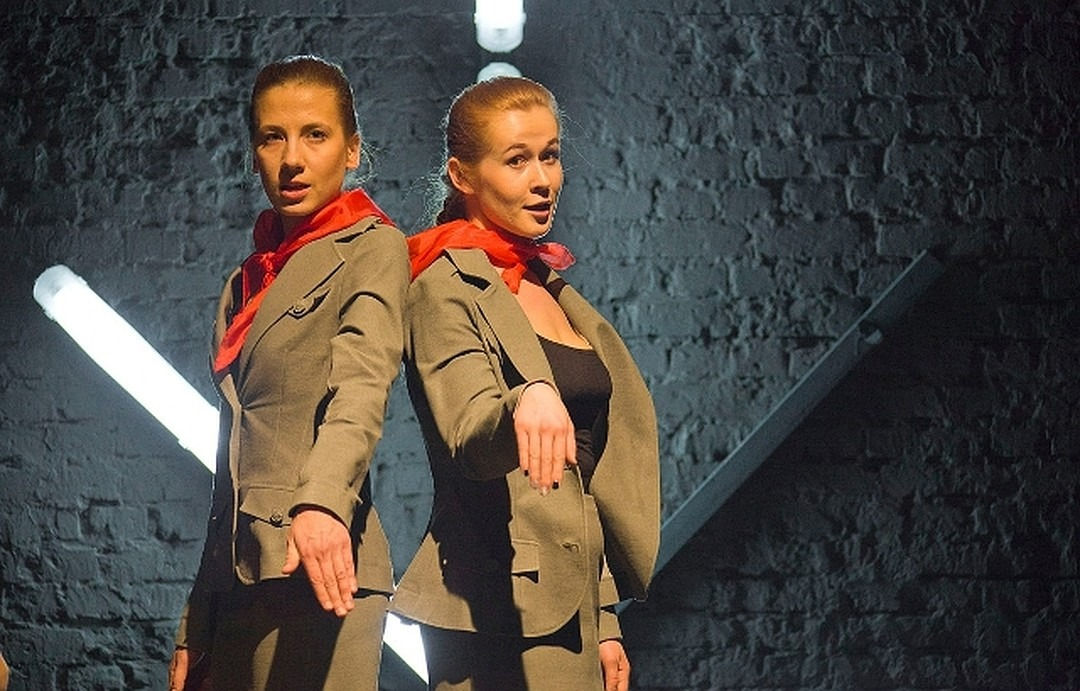
He Who Says Yes, He Who Says No, Brecht
Сцена Молот, Пермский академический Театр-Театр, Perm, Russia
"Important to learn above all is consent
Many say yes, and yet there is no consent
Many are not asked, and many
Consent to something false. Therefore:
Important to learn above all is consent."
In his school opera play (together with the music by Kurt Weil) He Who Says Yes, which was created in 1930, Brecht deals with the question of mutual responsibility of the society and its members. An epidemy breaks out in a remote village. A local teacher with his students starts out on a dangerous journey over the mountain chain to search for the “serious doctors”, in order to get medicine and advice from them. In spite of the teacher's warning a boy, whose mother is also ill, decides to take part in the expedition as well. During the hard journey the boy gets ill himself and neither can he go further himself, nor can his comrades carry him. The participants of the expedition find themselves confronted with a choice to make: either to come back in order to save the boy's life, or to sacrifice him for the sake of general welfare. Finally, the students throw the boy down the cliff upon his own consent.
In a later edition Brecht adds a second didactic play to He Who Says Yes. Apart from some differences in the initial situation, the plot of the play He Who Says No identically repeats its predecessor. Following the “great custom” the ill boy must be doomed to death. But this time the boy gives no consent to sacrificing himself and forces the expedition to come back: «The one who said “a”, does not have to say “b”. He might as well understand, that “a” was wrong. [...] I need a new great custom which we must develop immediately, and in particular, it must be a custom saying that each new situation must be considered anew.»
The boy's «No!» puts the relationship between the person and the society head over heels. The play He Who Says No describes a moment of emancipation, as well as a revolutionary moment of throwing down the structure. After this outbreak the collective has to find the right balance anew: «What should we do? What the boy says is reasonable, even though there's no heroism in it.» The expedition starts back to the initial point of their journey, towards an unknown future: «Shoulder to shoulder they went / Towards mockery, / Towards obscenities, having closed their eyes. / None more of a coward, than the one walking nearby.»
starring: Michael Chudnov, Lydia Anikeeva, Evgeny Volkov, Olga Pechenkina, Julia Zacharkina, Ekaterina Vaseva, Irina Loukashova
director: Andreas Merz Raykov
stage and costume design: Irina Romashko
translation: Ekaterina Raykova-Merz





